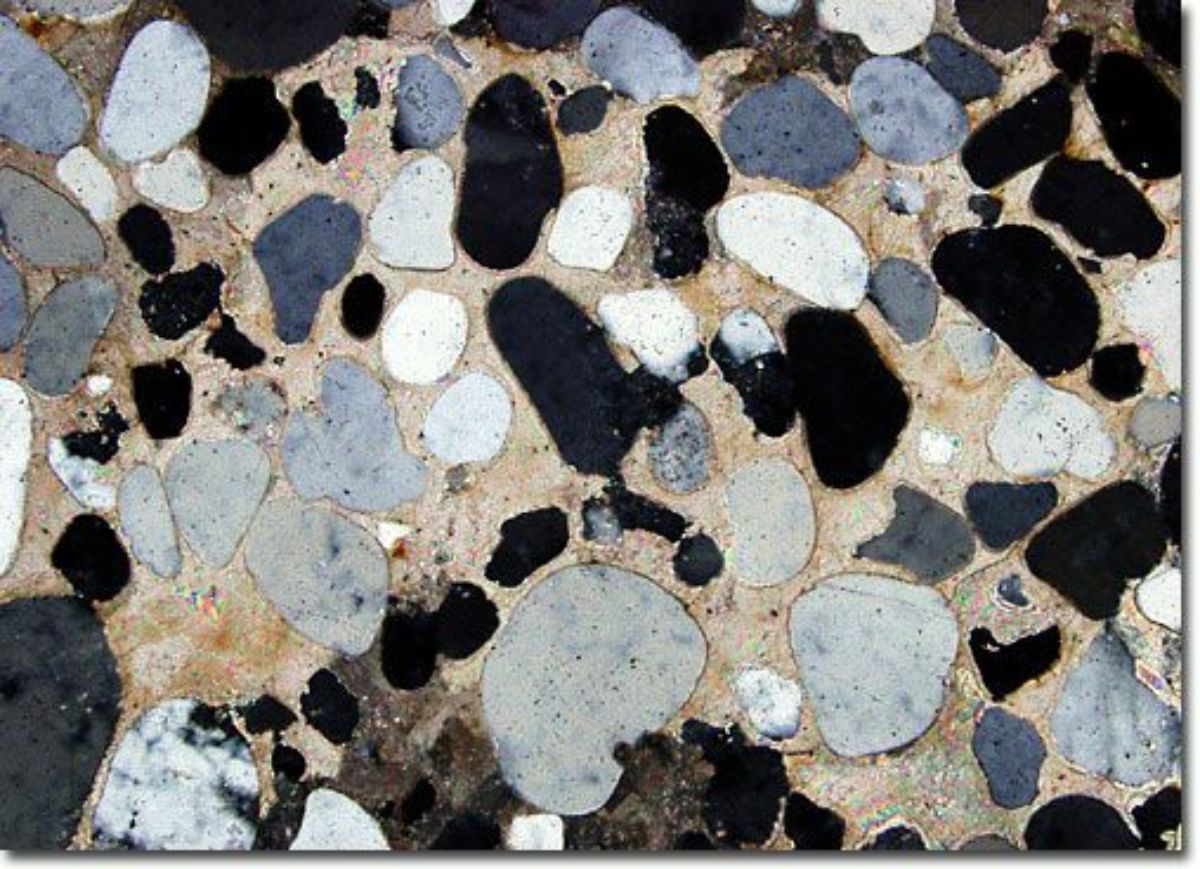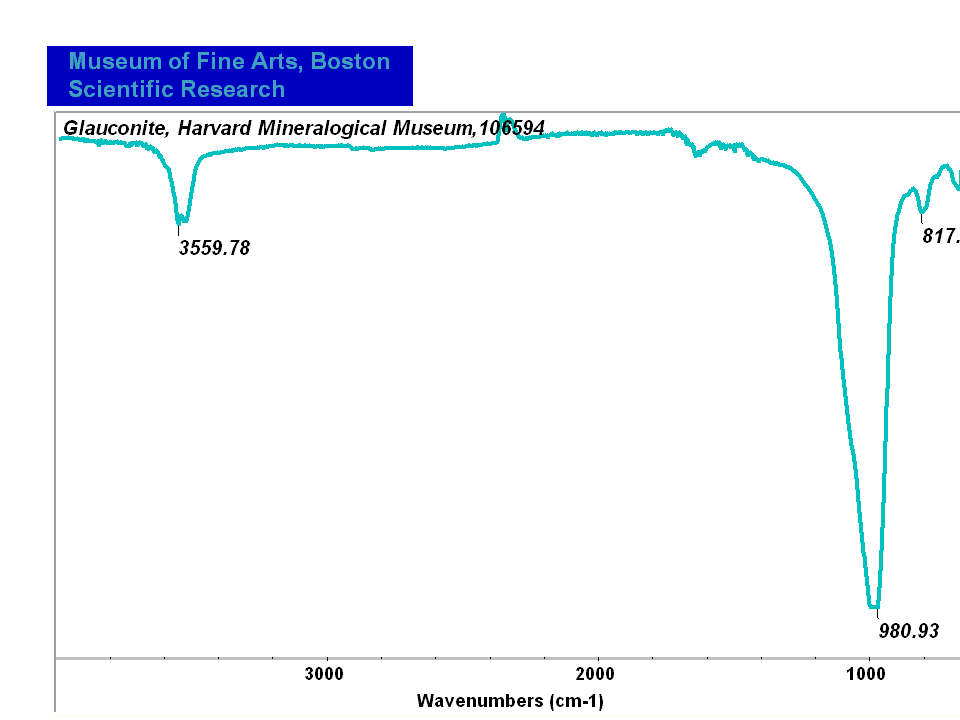Glauconite
Jump to navigation
Jump to search
Description
A dull green mica mineral composed of hydrated potassium iron silicate. Glauconite, unlike other micas, usually occurs as pellet-like grains in marine environments and, hence, is sometimes called green sand. It is formed from the alteration of iron-bearing silicates by ocean water and organisms. Glauconite is found along the Atlantic coast of the North and South America and on the ocean floors. Powdered glauconite, sometimes in conjunction with celadonite, has been used as a green earth pigment for paints.
Synonyms and Related Terms
green earth; Glaukonit (Deut.); glauconite (Fr., It., Port.); glaykofanis (Gr.); groene aarde (Ned.); glaukonit (Pol., Sven.); green sand; greensand
Physical and Chemical Properties
- Composition = (K,Na)(Fe3+,Al,Mg)2(Si,Al)4O10(OH)2
- Mohs Hardness = 2
- Density = 2.5-2.7 g/ml
- Refractive Index = 1.62
- Crystals = monoclinic No apparent cleavage.
Resources and Citations
- Mineralogy Database: Glauconite
- Wikipedia: Glauconite (Accessed Sept. 7, 2005 and March 2025) density = 2.2-2.95
- Encyclopedia Britannica, http://www.britannica.com Comment: "glauconite" [Accessed December 11, 2001].
- R. J. Gettens, G.L. Stout, Painting Materials, A Short Encyclopaedia, Dover Publications, New York, 1966 Comment: density 2.5-2.7 and ref.index.1.62
- Van Nostrand's Scientific Encyclopedia, Douglas M. Considine (ed.), Van Nostrand Reinhold, New York, 1976




